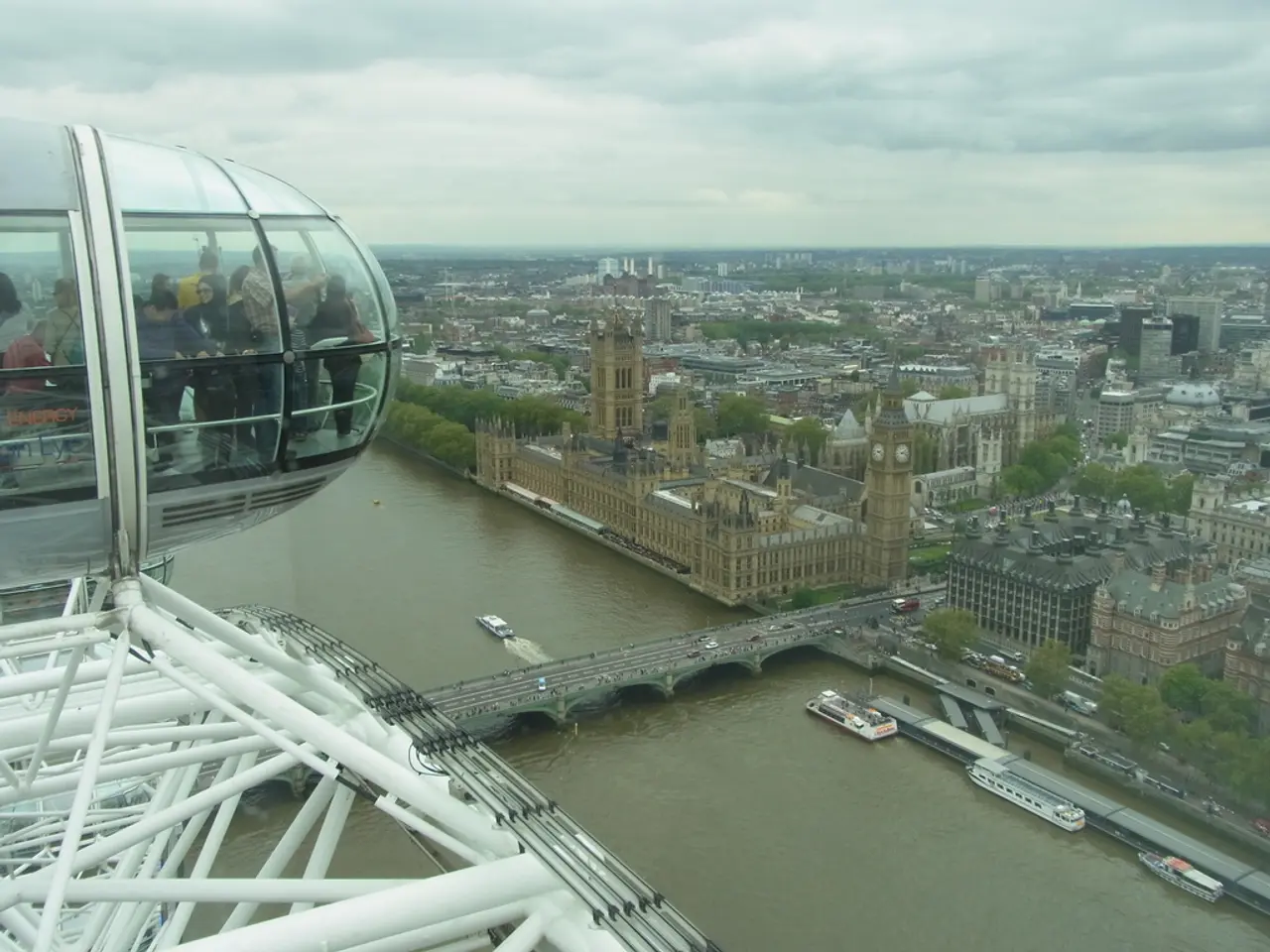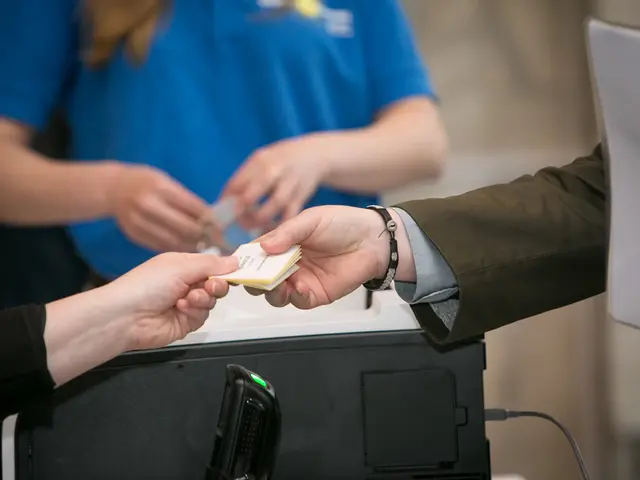Deputy Prime Minister Angela Rayner Struggles Again with Recall of Residential Address and Outstanding Debts
In a series of controversial incidents, Deputy Prime Minister Angela Rayner has found herself at the centre of a storm over her property dealings and tax affairs.
According to reports, Rayner has designated her Ashton-under-Lyne house as her primary residence. This move ensures that the taxpayer pays council tax on her London grace-and-favour flat. However, neighbours in Ashton-under-Lyne claim they rarely see her there.
The media has been criticised for not holding Rayner accountable for these inconsistencies in her statements. Questions have emerged about whether she owed capital gains tax when she sold her former council house. Rayner's defence for not paying capital gains tax was a "misunderstanding of the rules."
Rayner has also registered to vote in person at her recently purchased £800,000 second home in Hove. Electoral records show that she already has postal votes registered at both her constituency address in Ashton-under-Lyne and in Westminster.
The Deputy Prime Minister has been accused of selective memory and politically convenient forgetfulness regarding questions of honesty, money, and accountability. When video footage proved otherwise, she described her denial of a lockdown-breaking gathering in Durham as an "honest mistake."
Angela Rayner admitted she removed her name from the deeds of her family home before purchasing a seaside flat, saving her £40,000 in stamp duty. This move has raised questions about the manipulation of her property declarations for financial benefit.
The controversy has led to calls for an ethics investigation into Rayner's tax and housing arrangements. With her plans to cut the Right to Buy discount, a scheme she personally benefited £48,500 from, the media and public scrutiny is likely to continue.
The media has been criticised for not holding Rayner accountable for her property dealings and inconsistencies in her statements. This lack of accountability has led to a growing sense of unease among the public, who are demanding answers and transparency from their leaders.
Read also:
- United States tariffs pose a threat to India, necessitating the recruitment of adept negotiators or strategists, similar to those who had influenced Trump's decisions.
- Weekly happenings in the German Federal Parliament (Bundestag)
- Southwest region's most popular posts, accompanied by an inquiry:
- Discussion between Putin and Trump in Alaska could potentially overshadow Ukraine's concerns






